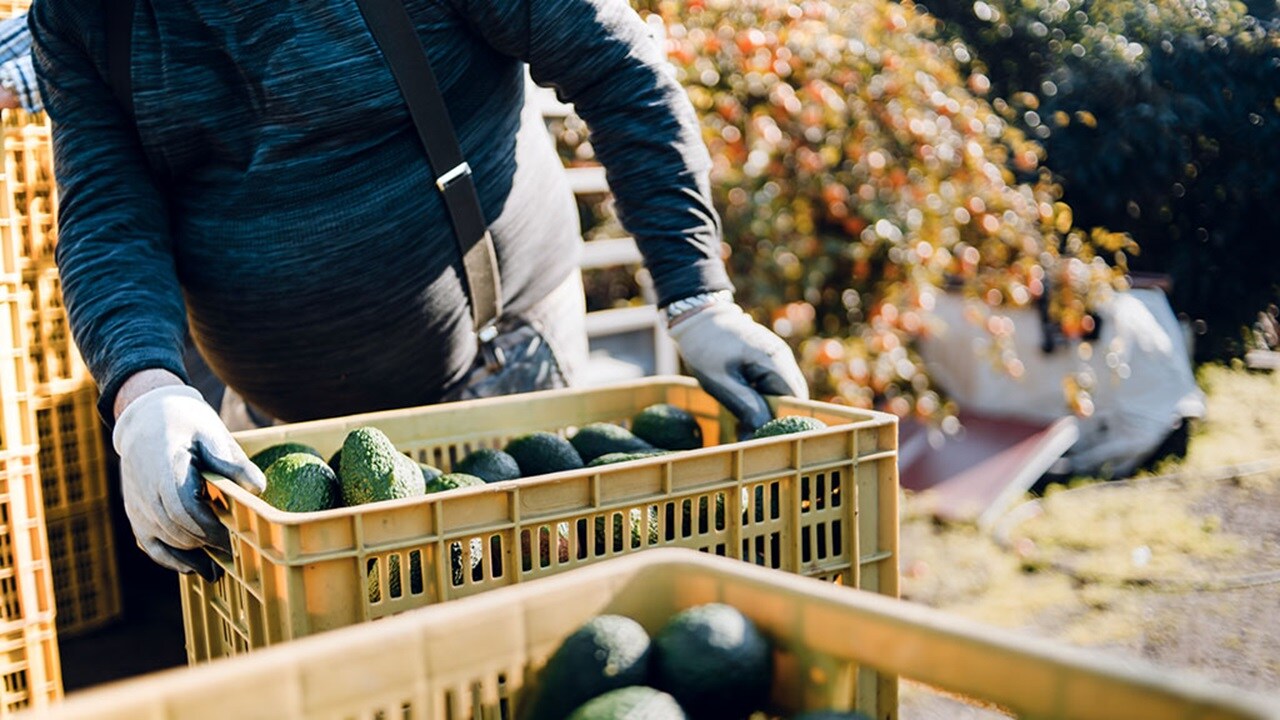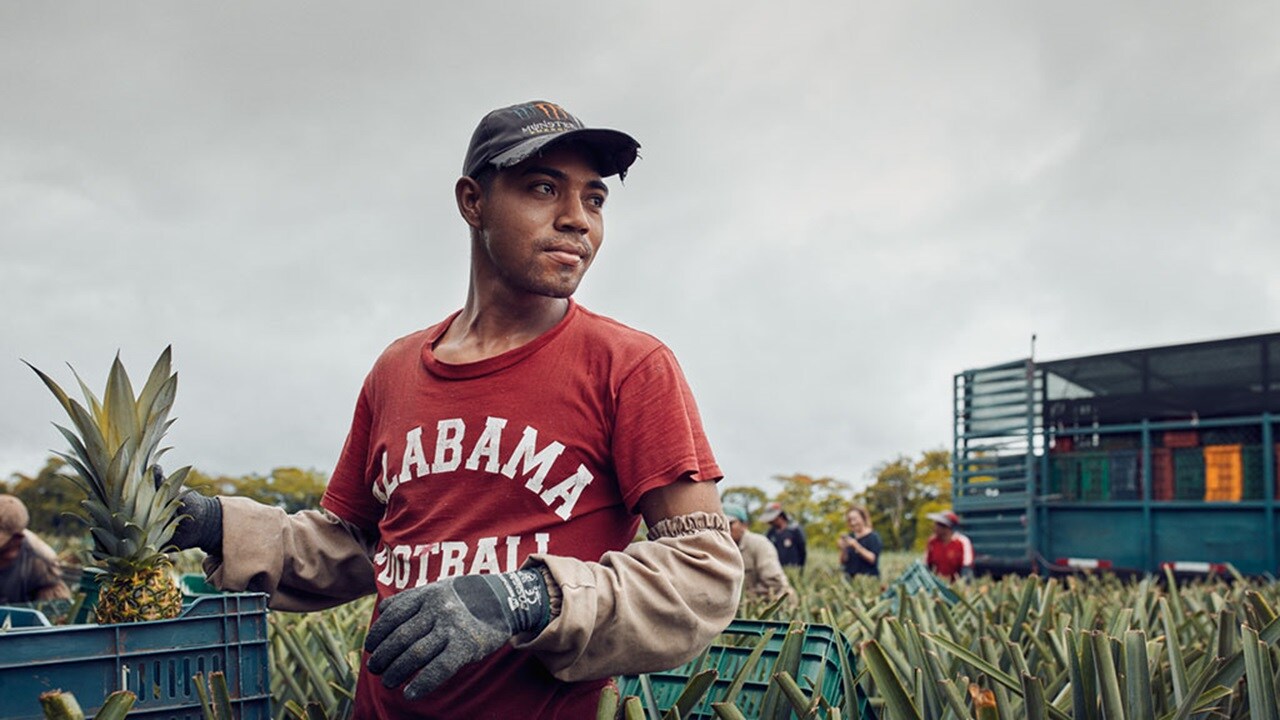The fruit and vegetable industry has faced a number of challenges over the last years, but unlike other markets that have had to endure dwindling demand, the overall need for fruit and vegetables remains consistent, as consumers must continue to satisfy their dietary needs even in times of crises.
While consumers had to spend around 17.9 per cent more on food in November 2022 than a year earlier and 53% of Europeans said they were going to economise on food consumption in 2023, the necessity of fruit and vegetables means inflation didn’t have too prominent an impact. Per capita, consumption of fruit in Germany has consistently hovered around 70kg per year even during recent years, while likewise the annual consumption of fresh tomatoes per capita in France has stood at around 12kg.
What distinguishes the fruit and vegetable industry from others is the rapid evolution of consumer demand and preferences, the challenges producers face in responding to that evolution, and especially the unpredictable impact of climate change on agricultural output. Extreme weather conditions in Spain brought about a decrease in production of both fruit and vegetables and resulted in the smallest citrus crop in the past decade.
At the same time, the very large onion crop of 2021 had put pressure on prices around the continent, which in turn led to a significant reduction in the area under cultivation. As these factors continue to shape the industry, we explore the primary challenges that fruit and vegetable growers are set to encounter in 2024 and offer insights on how businesses can make necessary preparations.
A balancing act of resilience and agility in fruit and vegetable industry
Agriculture, one of the oldest industries, has seen relatively few developments that would change the nature of the industry in recent years. Advances in machinery, irrigation, fertilisers, and seeds have helped farmers incease crop yields, but when it comes to responding quickly to consumer changes, agriculture remains very traditional. As such, agility, and responding quickly to changes in consumer preferences, will continue to pose a challenge for the industry in 2024.
The choice of crop in a region is determined, in part, by climate and soil conditions, and growers may not be able to transition to a different crop when there is a sudden surge in consumer demand for another. To fill the gap, in-demand crops have to be imported, often from the other side of the world.
Avocados, the second most imported fruit in Spain, have experienced the fastest growth output in recent years, with production projected to reach 12 million tones by 2030 – more than three times its level in 2010. Although new growth areas are emerging, about 74% of avocado production is expected to remain in Latin America and the Caribbean, meaning that if the region were to face extreme weather conditions, the world’s avocado supply could be at risk.

"An opportunity to overcome these risks lies at placing additional inventory at the right place. With cold store advancements, and a logistics network that allowes flexibility, having more inventory does not have to be a bad thing", says Martin Christopher, Emeritus Professor in Marketing and Logistics at Cranfield School of Management in the UK.
The agriculture industry’s main focus used to be cutting production costs – now, it is shifting to responding faster to unpredicted disruptions, and decreasing the after harvest cost. Laregely based on family businesses, the mentality of agriculture always involved direct ownership of assets, while in other industires, such as technology, contract manufacturing is a commonly used strategy.
“Fruit and vegetable producers could make use of similar concepts in warehousing, for example. Having access to shared capacity, instead of owning it directly, could benefit the producsers in being able to have the mentioned additional inventory in the right place through industry collaboration,” explained Christopher.
In the example of France, agricultural cooperatives (meaning cooperatives where producers pool their resources together) are commonplace in the wine sector, although the total number of cooperatives has been in constant decline since 2014, with the vast majority having a turnover of less than €100 million. In the coming years, fruit and vegetable industry will have to reconsider the trade-off between direct ownership of capacity and having access to shared capacity. Collaboration between producers, but also governments, business sector, and logistics providers will be the key moving forward, especially in areas with growing agricultural exports.
Minimising food waste and enhancing adaptation
“In the fruit and vegetable industry, future emphasis will be on whether the industry can continue as it is today and establish supply chains that can cope with the change,” says Christopher.
While processing and distribution of fruit and vegetables accounts for a smaller portion of total food loss and waste in the supply chain, reducing complexity and improving efficiency in storage and transport could further decrease these numbers. Using AI and digital twins in predicting different scenarios in the supply chain could both improve agility and reduce waste through better efficiency.

The biggest opportunity for the fruit and vegetable industry lies in collaboration between producers, retailers, and logistics providers on changing consumer mentality and awareness of food waste. More than 50% of total food waste worldwide comes from household waste, with data from the UK showing the vast majority of this waste is avoidable.
Effectively addressing food waste, both at the household level and in retail, requires a comprehensive and sustained effort that extends beyond the scope of 2024. This challenge entails not only altering consumer behaviors within households but also influencing their purchasing patterns. Several apps and supermarket chains often offer consumers the option to buy unsold, slightly damaged, or misshapen fruit and vegetables at a discount, however the adoption of such programs has ways to go. In France, for example, only 16% of consumers report using mobile apps for picking up unsold stocks, while both Italy and Poland are seeing an increase in downloads of similar apps.
Another question for the industry’s capacity to continue to feed the growing population is closely tied to the sector's ability to attract and retain a skilled workforce. European countries are seeing less and less of their workforce employed in agriculture, with the number of employees in Germany dropping almost 20% in the last 10 years. Being a seasonally intensive industry, agriculture requires seasonal labour too – making it increasingly difficult to attract and retain labour that is needed for the industry’s ongoing success. Alignment between fruit and vegetable producers, governments, and the business sector will be instrumental in ensuring seasonal employment in the industry is attractive for both workers and producers in need of seasonal labour.
The fruit and vegetable industry faces a unique set of challenges as it navigates the evolving landscape of consumer preferences, climate-related disruptions, and the need to sustain the world’s food supply. The industry's resilience and adaptability are being put to the test, where collaboration among producers, retailers, logistics providers, and governments will be instrumental in charting the path forward.
未来,您想随时了解必读行业趋势吗?
您已经完成了,欢迎“登船”!
很抱歉,发送您的联系请求时出现问题。
请查看表单字段,确保所有已正确填写所有必填信息。如果问题仍然存在,请联系我们的支持团队以获得进一步的帮助。
未来,您想随时了解必读行业趋势吗?
使用此表格注册,即可直接在您的邮箱中接收我们的洞察见解,进入一个真正的综合物流世界。简单操作,即从我们为您量身定做的精选文章中获得启发,了解相关行业洞察信息。您可以随时取消订阅。
I agree to receive logistics related news and marketing updates by email, phone, messaging services (e.g. WhatsApp) and other digital platforms, including but not limited to social media (e.g., LinkedIn) from A. P. Moller-Maersk and its affiliated companies (see latest company overview). I understand that I can opt out of such Maersk communications at any time by clicking the unsubscribe link. To see how we use your personal data, please read our Privacy Notification.
By completing this form, you confirm that you agree to the use of your personal data by Maersk as described in our Privacy Notification.













